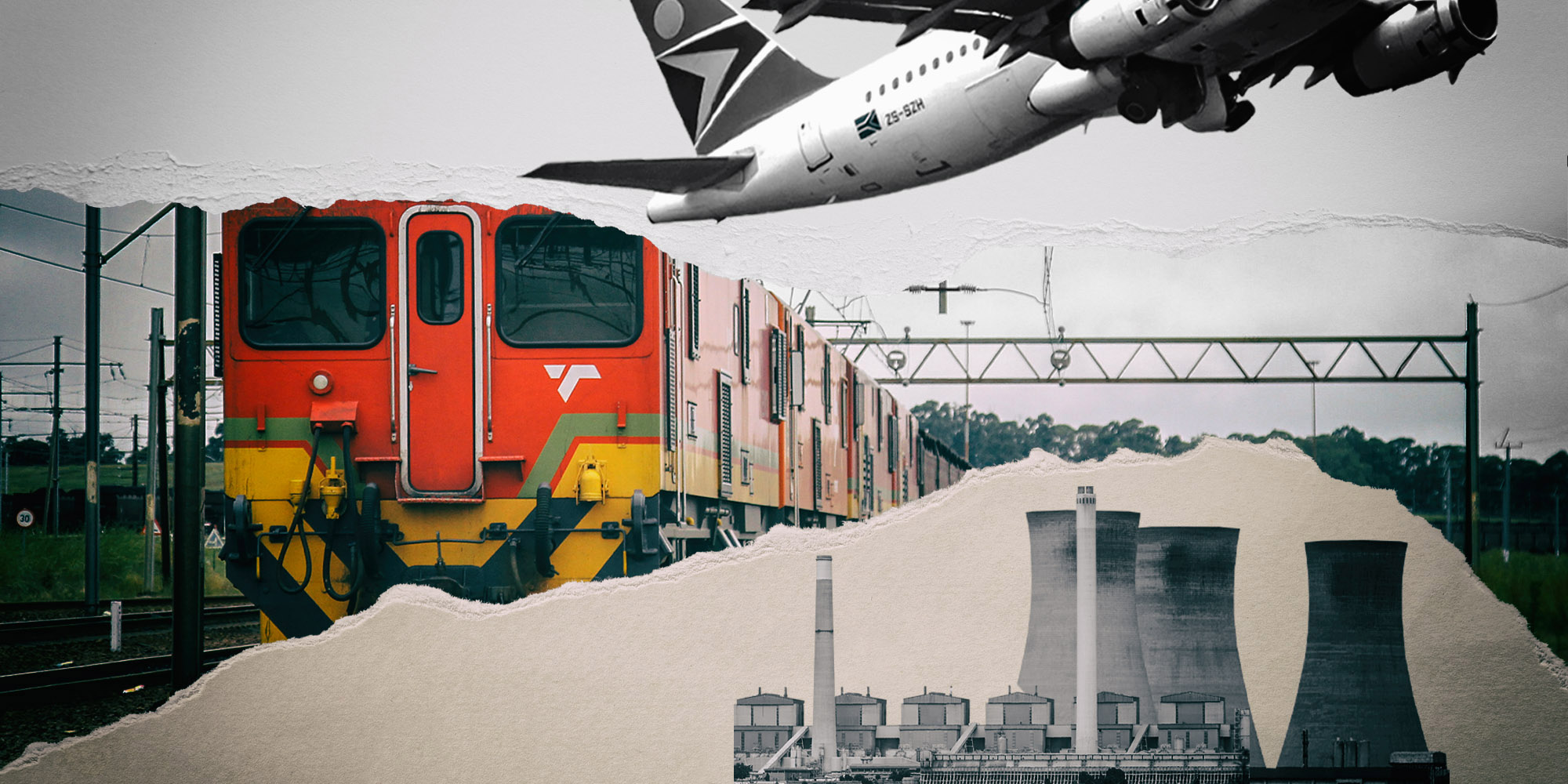Five state-owned enterprises (SOEs) which are broken, constantly depend on taxpayer-funded bailouts and undermine SA’s economic growth potential, are failing to show any demonstrable signs of reforms in their financial situations.
Over the past nine months, Eskom, the SA Post Office, South African Airways, Denel and the Land Bank have together racked up financial losses of R9.8-billion, a recent presentation by the National Treasury to Parliament revealed. These struggling SOEs have approached the government with a begging bowl and received bailouts of more than R280-billion in just three years.
Arguably, there is nothing to show for the taxpayer-funded bailouts as these SOEs remain a mess — financially and operationally. Eskom, which recorded a financial loss of R7.5-billion in the nine months ending December 2023, still cannot fulfil its basic function of keeping the lights on despite receiving financial support of R265-billion (in tranches) over three years.
https://youtu.be/9dFRaWprTW0?si=poxRvwX86s7qE0N4
Read more in Daily Maverick: Government’s debt relief for Eskom gives power utility some breathing space
The SA Post Office, which is in business rescue and cannot fulfil its postal and package delivery obligations, recorded a R976-million loss from April to the end of December 2023. It stands to receive a further bailout worth R3.8-billion to fund its business rescue process — money that is over and above the R10.3-billion the SOE received during the past nine years.
Read more in Daily Maverick: It’s now up to government to decide on R3.8bn bailout for SA Post Office
South African Airways (SAA) is also in financial disarray. The airline had forecast that it would eke out a profit in 2023 after many years of being in a money-losing position. Derek Hanekom, the interim SAA board chair, who recently signed off the four sets of SAA’s financial statements, told Parliament in November that the airline was showing “a modest profit at this stage and no loss is expected”.
Read more in Daily Maverick: SAA returns to profitability after Covid lockdowns (apparently)
After all, a smaller SAA emerged from the business rescue process; the airline leases fewer than nine aircraft and flies fewer than 20 times a day. Before the airline entered business rescue in December 2019, it leased more than 20 aircraft, flying more than 20 times a day, including domestic, regional and international routes.
However, SAA made a financial loss of R776-million from April to December 2023, the data the Treasury presented in Parliament show. Meanwhile, since 2018, SAA received taxpayer-funded bailouts worth R38.1-billion.
The Land Bank (a state-owned agricultural lender) and Denel (a state-owned arms manufacturer) recorded the lowest financial losses. The Land Bank, which still has not remedied its default on debt repayments since 2020 and is at loggerheads with its creditors and the Treasury on remedy measures, recorded a financial loss of R97-million.
Read more in Daily Maverick: Land Bank shows promising turnaround signs, but faces long road to recovery
Denel is another SOE that guzzles taxpayer funds. It was allocated R3.4-billion in 2022. However, the funds were withheld until Denel finalised a plan to turn around its financial and operational situation. In the nine months ending December 2023, Denel recorded a financial loss of R463-million.
Pressure on public finances
The continued bailouts for SOEs are a central reason the government’s public finances are constrained. The government has had to borrow money (at costly rates) to fund bailouts for SOEs, and even cut departmental budgets (in areas such as education and health) to free up money to support such entities.
The government expects its debt to rise from R4.8-trillion in 2023/24 to R5.2-trillion in the next financial year. By 2025/26, it will exceed R6-trillion. Out of every rand generated from tax collection, the government shells out about 20 cents towards paying service costs (such as interest) on the debt.
When Finance Minister Enoch Godongwana presents the Budget on Wednesday, 21 February, he is expected to announce further support for SOEs, mainly Transnet and the SA Post Office. Transnet, which has another R40-billion in debt repayments due over the next three years, recently received a government guarantee of R47-billion to help settle its debt.
Read more in Daily Maverick: Government throws a R47-billion support package to get Transnet back on track
The government sees Transnet as too big to fail owing to its significance to SA’s economy and its growth potential. Because of this, the Treasury might intervene to further support Transnet, said Sanisha Packirisamy, an economist at Momentum Investments.
“However, extending financial aid to Transnet at a time when fiscal policy is expected to become less stringent ahead of this year’s election will only exacerbate the challenge of establishing SA’s public finances on a sustainable path,” she said. DM





